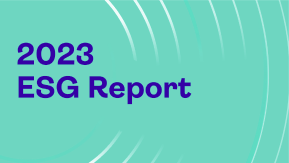VASCO Announces Bankruptcy Filing by DigiNotar B.V.
OAKBROOK TERRACE, IL, and ZURICH, Switzerland, September 20, 2011 - VASCO Data Security International, Inc. (Nasdaq: VDSI) (www.vasco.com) today announced that a subsidiary, DigiNotar B.V., a company organized and existing in The Netherlands (“DigiNotar”) filed a voluntary bankruptcy petition under Article 4 of the Dutch Bankruptcy Act in the Haarlem District Court, The Netherlands (the “Court”) on Monday, September 19, 2011 and was declared bankrupt by the Court today.
The Court appointed a bankruptcy trustee (the “Trustee”) and a bankruptcy judge (the “Judge”) to manage all affairs of DigiNotar as it proceeds through the bankruptcy process. The Trustee will work under the supervision of the Judge and be responsible for the administration and liquidation of DigiNotar. The Trustee is required to report to the Judge and his reports are expected to be made available to the public and will serve as a source of information to the creditors and other stakeholders. Effective as of the beginning of business today, the Trustee has taken over the management of DigiNotar’s business activities.
“Although we are saddened by this action and the circumstances that necessitated it,” said T. Kendall Hunt, VASCO’s Chairman and CEO, “we would like to remind our customers and investors that the incident at DigiNotar has no impact on VASCO's core authentication technology. The technological infrastructures of VASCO and DigiNotar remain completely separated, meaning that there is no risk for infection of VASCO’s strong authentication business. In addition, we plan to cooperate with the Trustee and the Judge to the fullest extent reasonably practicable to bring the affairs of DigiNotar to an appropriate conclusion for its employees and customers. We also plan to cooperate with the Dutch government in its investigation of the person or persons responsible for the attack on DigiNotar. ”
“We want to emphasize that the bankruptcy filing by DigiNotar, which was primarily a certificate authority, does not involve VASCO’s core two-factor authentication business,” said Jan Valcke, VASCO’s President and COO. “While we do not plan to re-enter the certificate authority business in the near future, we expect that we will be able to integrate the PKI/identity verification technology acquired from DigiNotar into our core authentication platform. As a result, we expect to be able to offer a stronger authentication product line in the coming year to our traditional customers.”
“We are working to quantify the damages caused by the hacker’s intrusion into DigiNotar’s system and will provide an estimate of the range of losses as soon as possible, “ said Cliff Bown, VASCO’s Executive Vice President and CFO. “We expect to report the results of the DigiNotar operations, the losses related to the impairment of intangible assets specifically associated with DigiNotar and the estimated costs associated with the closure of DigiNotar either as a discontinued operation in our future financial statements or we will provide proforma information to identify the impact of DigiNotar on our consolidated results. While the losses associated with DigiNotar are expected to be significant, we do not expect, given the manner in which the acquisition of DigiNotar was structured, that the value of all of the intangible assets acquired will be fully impaired. We expect that a significant portion of the value assigned to the intellectual property acquired from DigiNotar to continue to have value as we incorporate the technology into our existing product line.”
VASCO is a leading supplier of strong authentication and e-signature solutions and services specializing in Internet security applications and transactions. VASCO has positioned itself as a global software company for Internet security serving a customer base of approximately 10,000 companies in more than 100 countries, including approximately 1,700 international financial institutions. VASCO’s prime markets are the financial sector, enterprise security, e-commerce and e-government.
Cautionary Note Regarding Forward-Looking Statements
This press release contains forward-looking statements within the meaning of Section 21E of the Securities Exchange Act of 1934 and Section 27A of the Securities Act of 1933 concerning, among other things, the prospects of, and developments and business strategies for, VASCO and our operations, including the development and marketing of certain new products and the anticipated future growth in certain markets in which we currently market and sell our products or anticipate selling and marketing our products in the future. These forward-looking statements (1) are identified by use of terms and phrases such as “expect”, “believe”, “will”, “anticipate”, “emerging”, “intend”, “plan”, “could”, “may”, “estimate”, “should”, “objective”, “goal”, “possible”, “potential” and similar words and expressions, but such words and phrases are not the exclusive means of identifying them, and (2) are subject to risks and uncertainties and represent our present expectations or beliefs concerning future events. VASCO cautions that the forward-looking statements are qualified by important factors that could cause actual results to differ materially from those in the forward-looking statements. These risks, uncertainties and other factors have been described in greater detail in our Annual Report on Form 10-K for the year ended December 31, 2010 and include, but are not limited to, (a) risks of general market conditions, including currency fluctuations and the uncertainties resulting from turmoil in world economic and financial markets, (b) risks inherent to the computer and network security industry, including rapidly changing technology, evolving industry standards, increasingly sophisticated hacking attempts, increasing numbers of patent infringement claims, changes in customer requirements, price competitive bidding, and changing government regulations, and (c) risks specific to VASCO, including, demand for our products and services, competition from more established firms and others, pressures on price levels and our historical dependence on relatively few products, certain suppliers and certain key customers. Thus, the results that we actually achieve may differ materially from any anticipated results included in, or implied by these statements.






